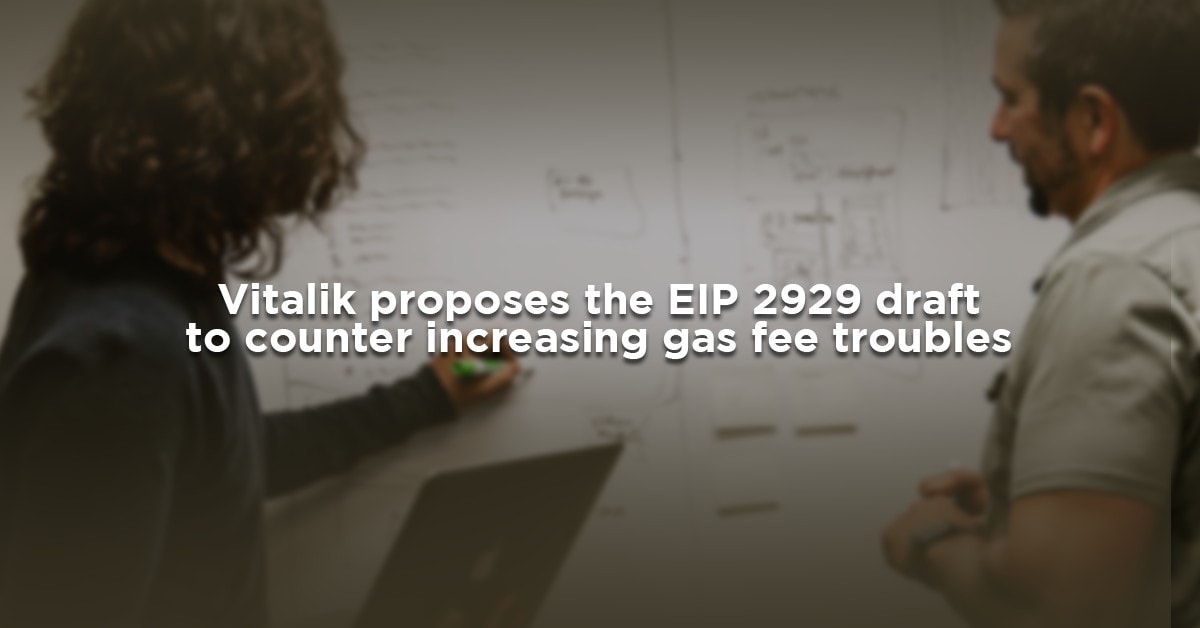Ethereum’s rising gas fees has been a matter of concern and discussion for quite a long time now. In order to counter the situation and find a possible solution to this ever-increasing problem on the Ethereum network, Vitalik Buterin, the co-founder of the Ethereum smart contracts blockchain has proposed the Ethereum improvement proposal (EIP) 2929 as a probable solution to the surmounting problem.
As the DeFi space is expanding the transaction fees on Ethereum have increased exponentially hitting an average of $15.21, which is why Buterin has drafted the EIP 2929 as a probable solution that might work. The draft has been divided into different sections, and one of the sections apparently reads,
“This proposed EIP increases the costs of these opcodes by a factor of ~3, reducing the worst-case processing time to ~7-27 seconds. Improvements in database layout that involve redesigning the client to read storage directly instead of hopping through the Merkle tree would decrease this further, though these technologies may take a long time to fully roll out, and even with such technologies the IO overhead of accessing storage would remain substantial.”
As enumerated in the EIP 2929 draft on GitHub, the proposal looks forward to increasing the gas cost for the *CALL, BALANCE, EXT*, and SELFEDESTRUCT state access opcode family. For the uninitiated, in computer programming, an operation code (opcode) is the part of a machine language instruction that specifies the task to be performed. These opcodes are responsible for updating the Ethereum state.
There have been previous EIPs like the EIP 1559 which strives to make it possible for transactions to pay the same gas fee. The current proposal by the founder still has a lot to be discussed by the community per se. This means that when the community discusses, finds it apt, or proposes changes, it can be a time-taking affair to come up with an immediate solution to this problem. Considering this in mind, Hendrik Hofstadt, founder of Certus Oneit, has clearly implied that the best bet for Ethereum developers is to tackle the issue by incorporating their own Layer-2 scaling solutions. It should be noted that some stablecoin projects on the Ethereum network were already creating solutions to cope with the gas fees increase.
Late August this year, the members of the Circle Consortium Circle, and Coinbase, released USDC 2.0. This is an upgraded version of the stablecoin which has been designed to support the concept of gasless transactions. As on September 1’st, 2020 there were reports emerging in the circle that Tether, the immensely controversial stablecoin was looking to integrate ZK-Rollups because it was looking at reducing transaction fees and the following congestion on the Ethereum network. We had reported the same in one of our featured articles which you can read here.
While something materializing out of the draft seems something distant as of now, this can be counted as the first step to tackle this mounting trouble everyone is facing.

